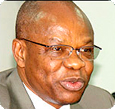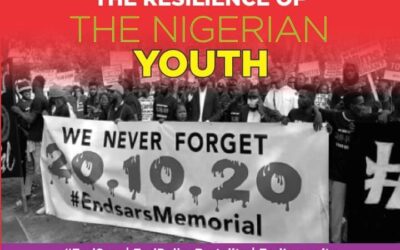Amid calls for his resignation over the alleged shoddy handling of the April elections, the Chairman of the Independent National Electoral Comm-ission (INEC), Prof Maurice Iwu, has said nothing will make him resign.
Reacting to a question from newsmen after the presentation of a report on the election in Washington, D.C., United States (US) yesterday, Iwu said although “mistakes” were made, he maintained that politicians wanted his head at all cost because of their failure to disrupt the entire electoral process.
“Some people have called for my resignation. These are partisan people who wanted to be in power at all cost. Some people are partisan; they have media; they shout and they shout loudest. I’ve just made a presentation and you can see the support of Nigerians who have now had the facts."
The INEC boss told THISDAY that the question of resignation did not arise.
He said the anger of some critics, particularly politicians were misplaced.
"They should work harder to win elections during the next polls," he countered.
“How can you allow someone who has partisan interest; who lost election; who has all rights to be aggrieved from venting his anger. But the point is that the anger is misplaced. We should think in terms of their working hard to win elections next time and not trying to personalise issues.
“One thing is a fact. The fact is that the election was a triumphant movement on the part of Nigerians from one civilian elected government to another. That is something that nobody can remove from Nigeria.”
He declared that the country had made a “tremendous stride”.
The bickering of a handful of people should not be allowed to affect negatively the fortunes of the masses, he thundered.
"The Commission wants the bigger interest of Nigerians to prevail," said the INEC boss.
Explaining the rationale behind INEC's presentations abroad, he said it would allow Nigerians in the Diaspora the opportunity to hear the facts in order to make judgments themselves.
“In terms of public opinion, we are trying to capture our people as many as possible in terms of their knowing what happened at the elections and then be able to form their own opinion,” he remarked.
Iwu said the report was coming late, more than six months after the election, so as not to interfere with the election petition tribunals, adding that the tribunals were part of the entire electoral cycle.
"Until their job is completed, the national electoral process is still on. Some of the challenges faced include inability to access funds meant for training; lack of preparedness of some political parties who did not have polling agents or physical presence; late arrival of election materials flown in from South Africa among others.
"The last batch of materials arrived the country by 10 p.m Friday night and was distributed within 12 hoursto the 774 local government areas and 8,800 wards. This was a huge challenge," he declared.
He maintained his previous assertions that some powerful politicians worked to get the polls postponed so that an interim national government would emerge.
The INEC chairman said others planned to cause trouble by seeking a court judgment to stop the announcement of results, adding that another group who benefited from military rule wanted to topple the government.
The “guiding principle” of INEC, he stated, was to conduct the election in order to checkmate the third term agenda, which was the wish of the masses.
On international observers, Iwu stated that most of them ignored the rules.
“They cannot do that in the Federal Republic of Nigeria,” he stated.
He explained that INEC rejected an offer of 10 million euros from the European Union (UN) based on principles.
"The offer was increased to 20 and later 40 million euros but it was rejected. The animosity with EU began when INEC rejected their request to sit in the commission’s meetings and to have a copy of voters tabulated electronically," Iwu said.
On resident electoral officers, the INEC chairman argued that he had no right constitutionally to determine what happened in the states. “My job as Chief Electoral Officer starts with preparing the election. I have no authority to tell resident electoral officers what to do. Did I tabulate the results tendered by resident officers? I am swearing by God Almighty that I did not. We did everything we said we will do according to the Constitution” he submitted.
He said the Commission did not prevent anybody from voting or being voted for.
From Constance Ikokwu in Washington, D.C.
This Day
Wednesday, December 19, 2007




